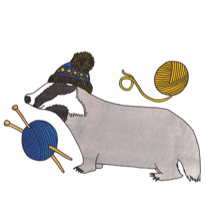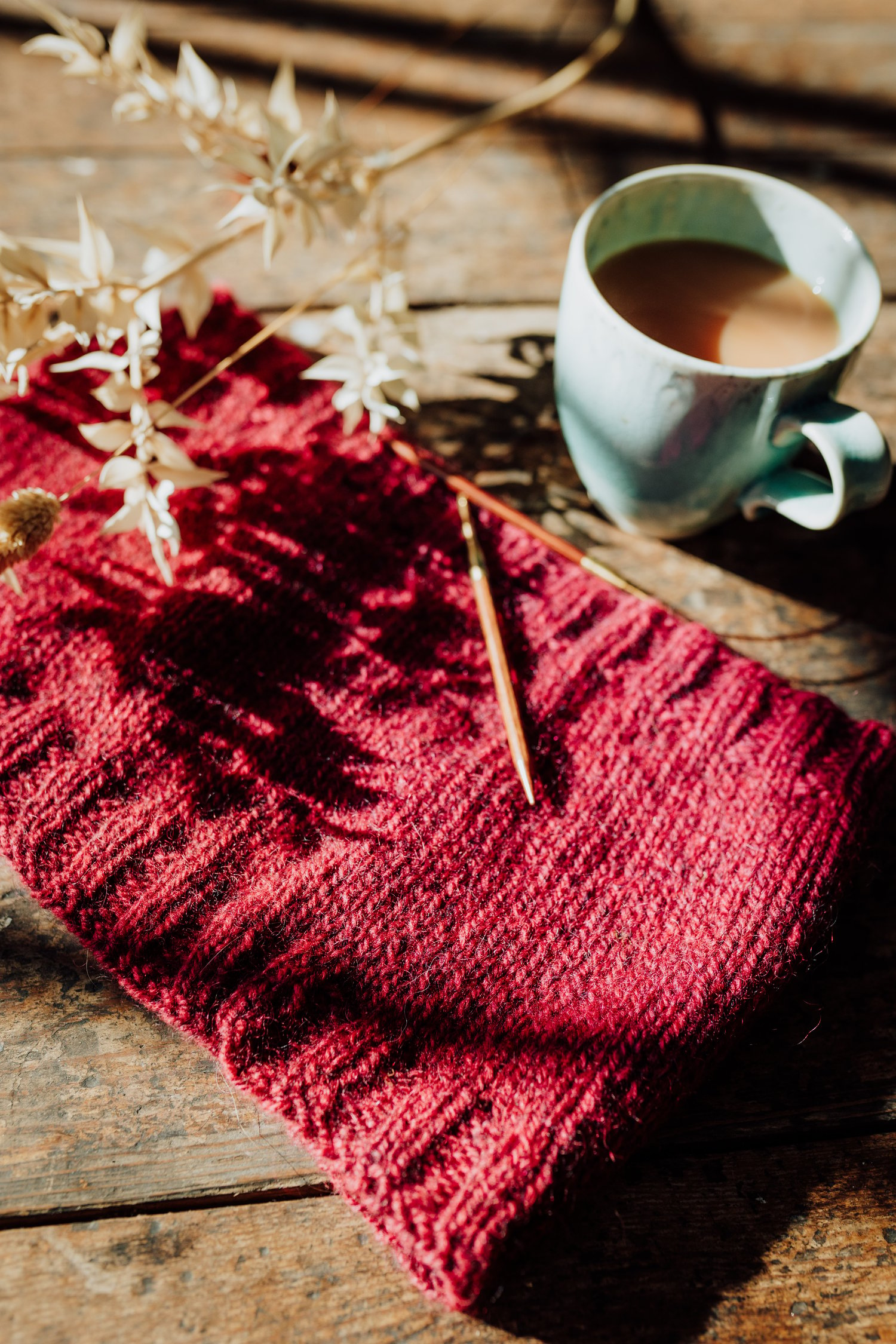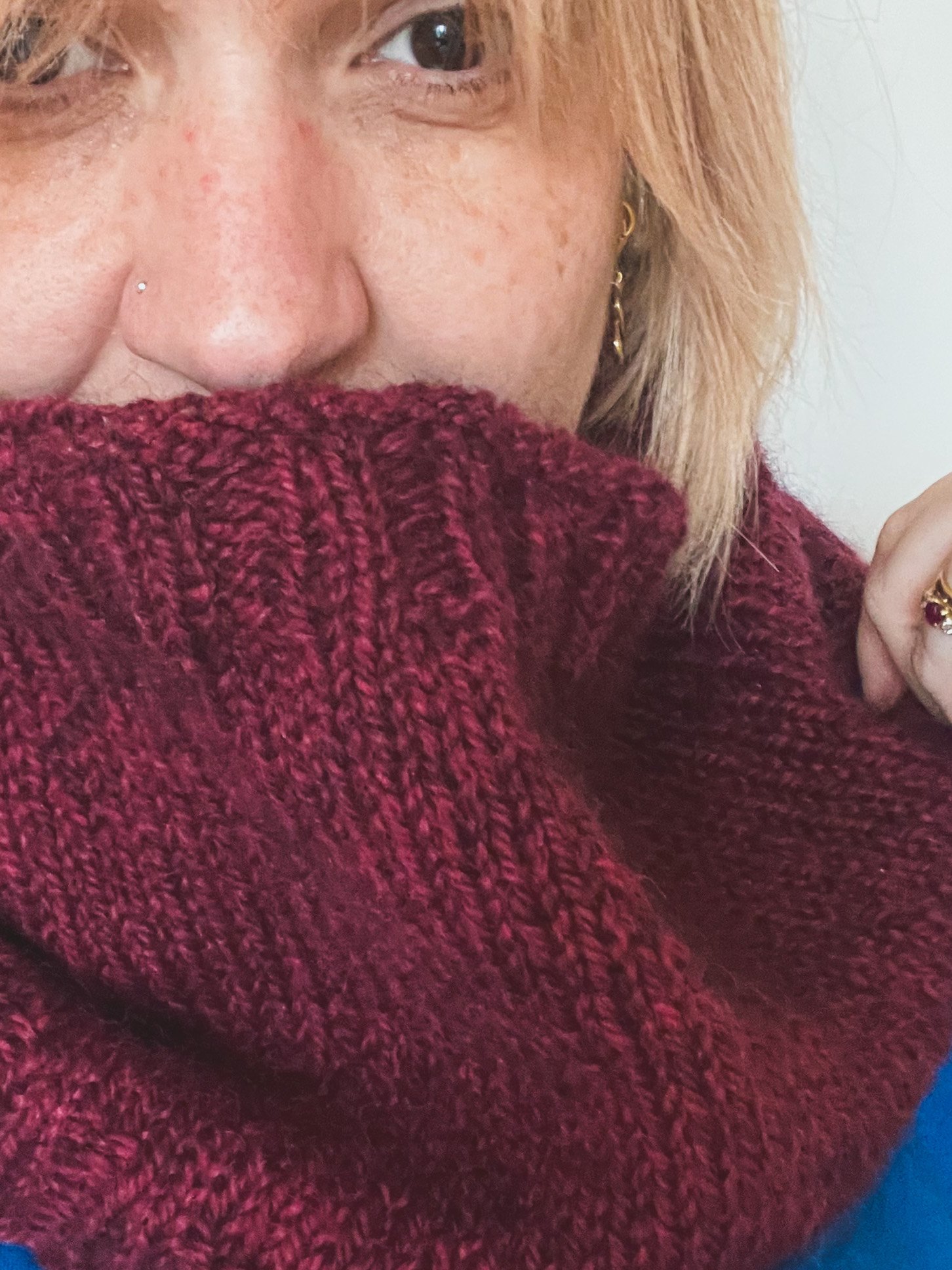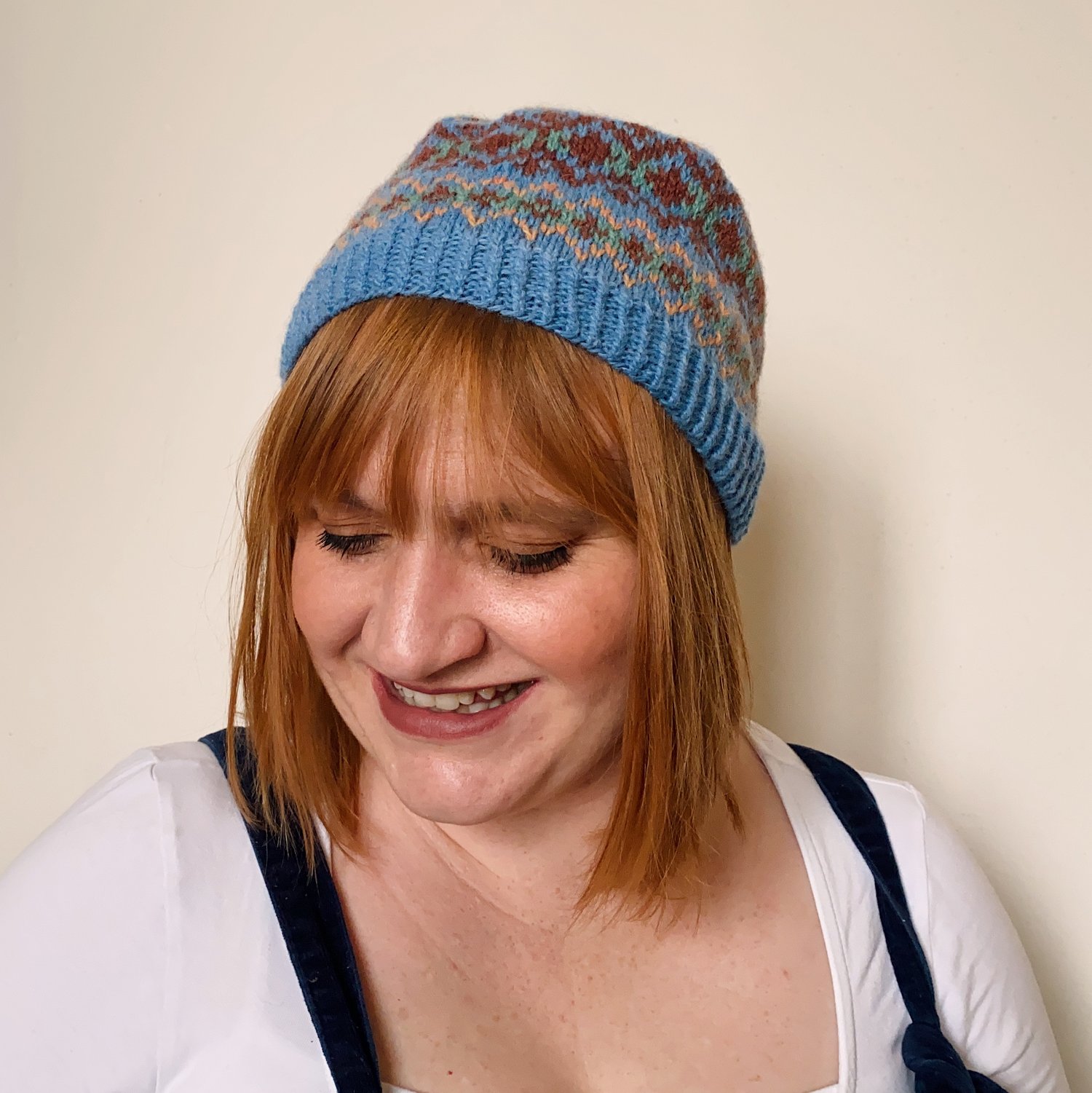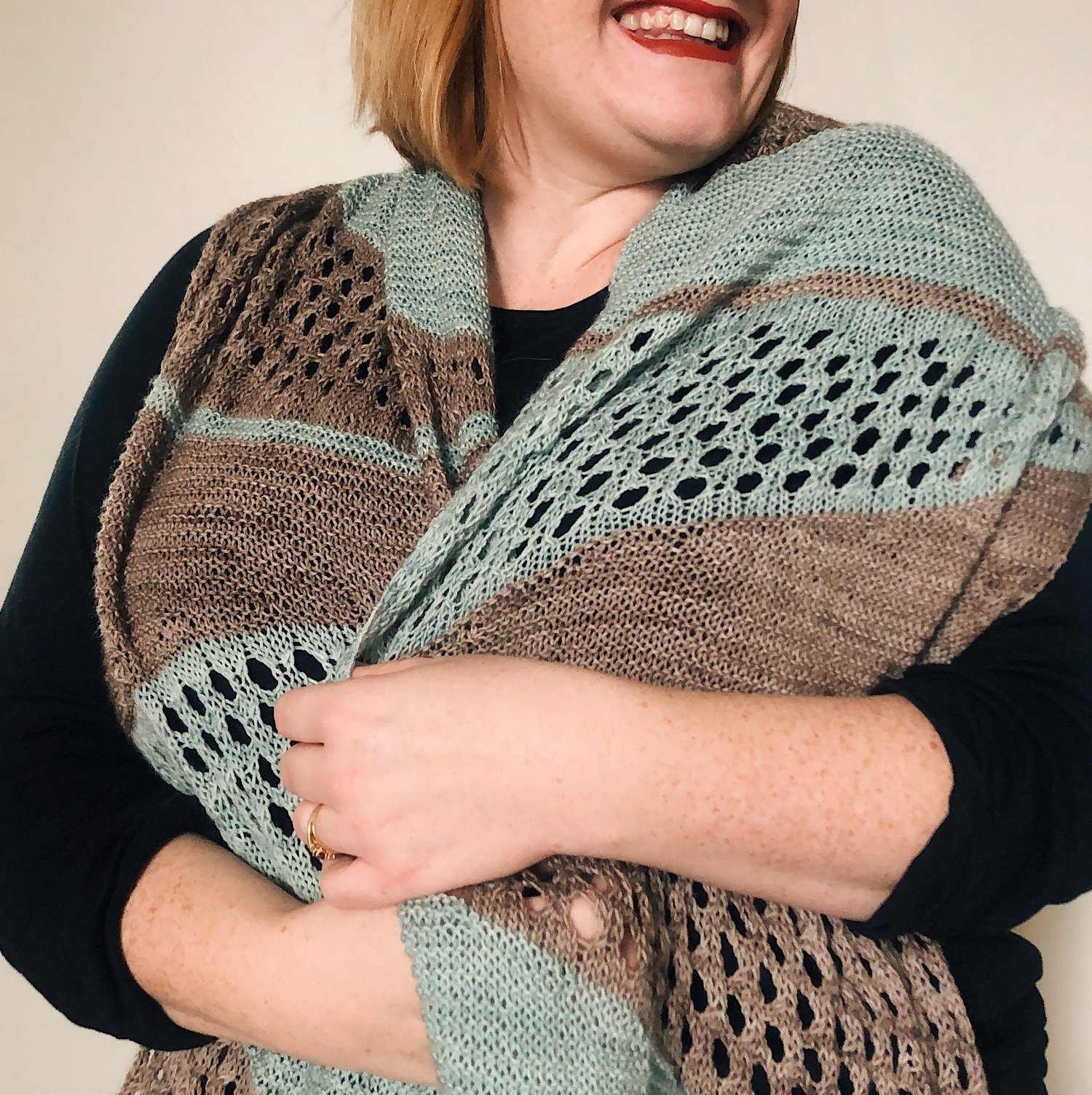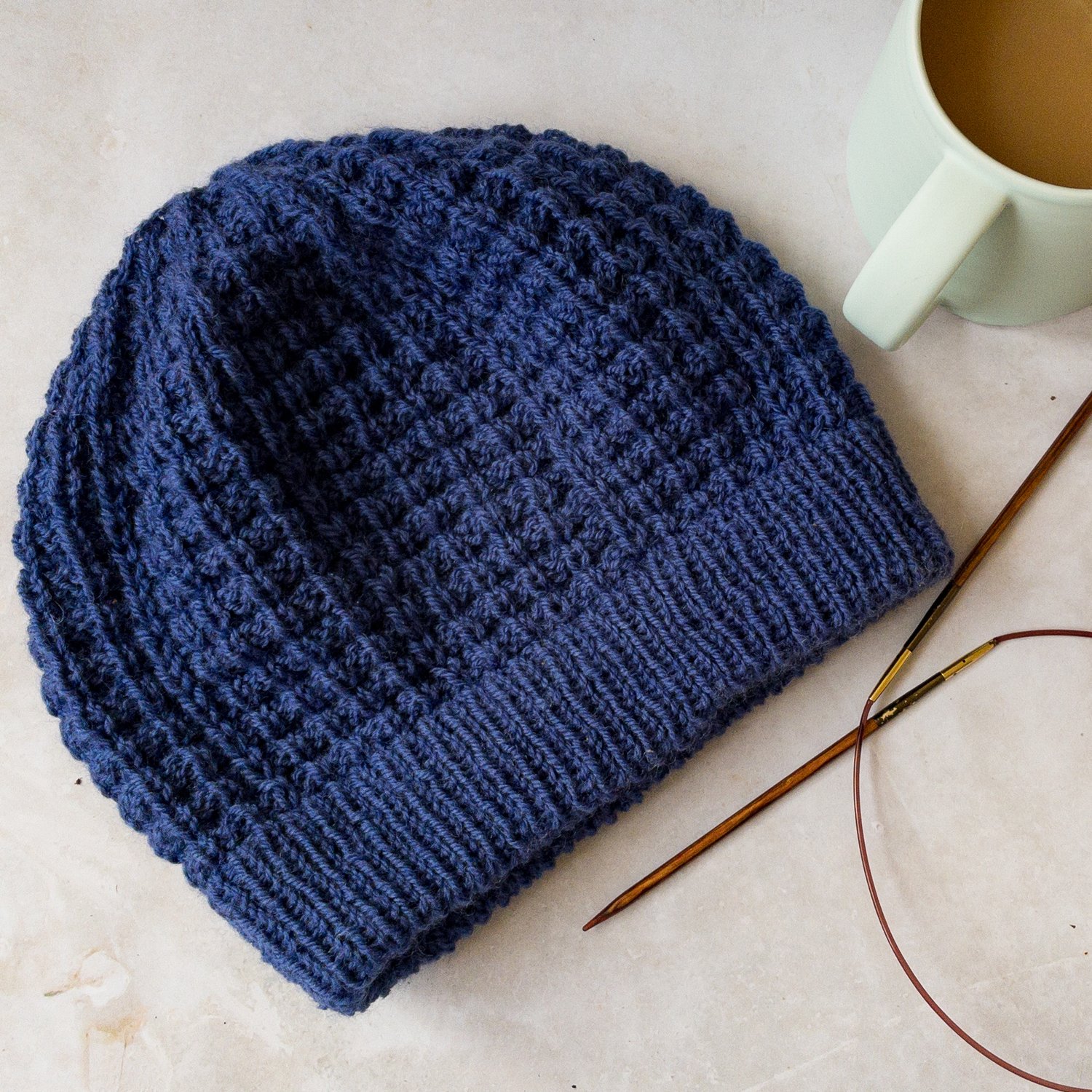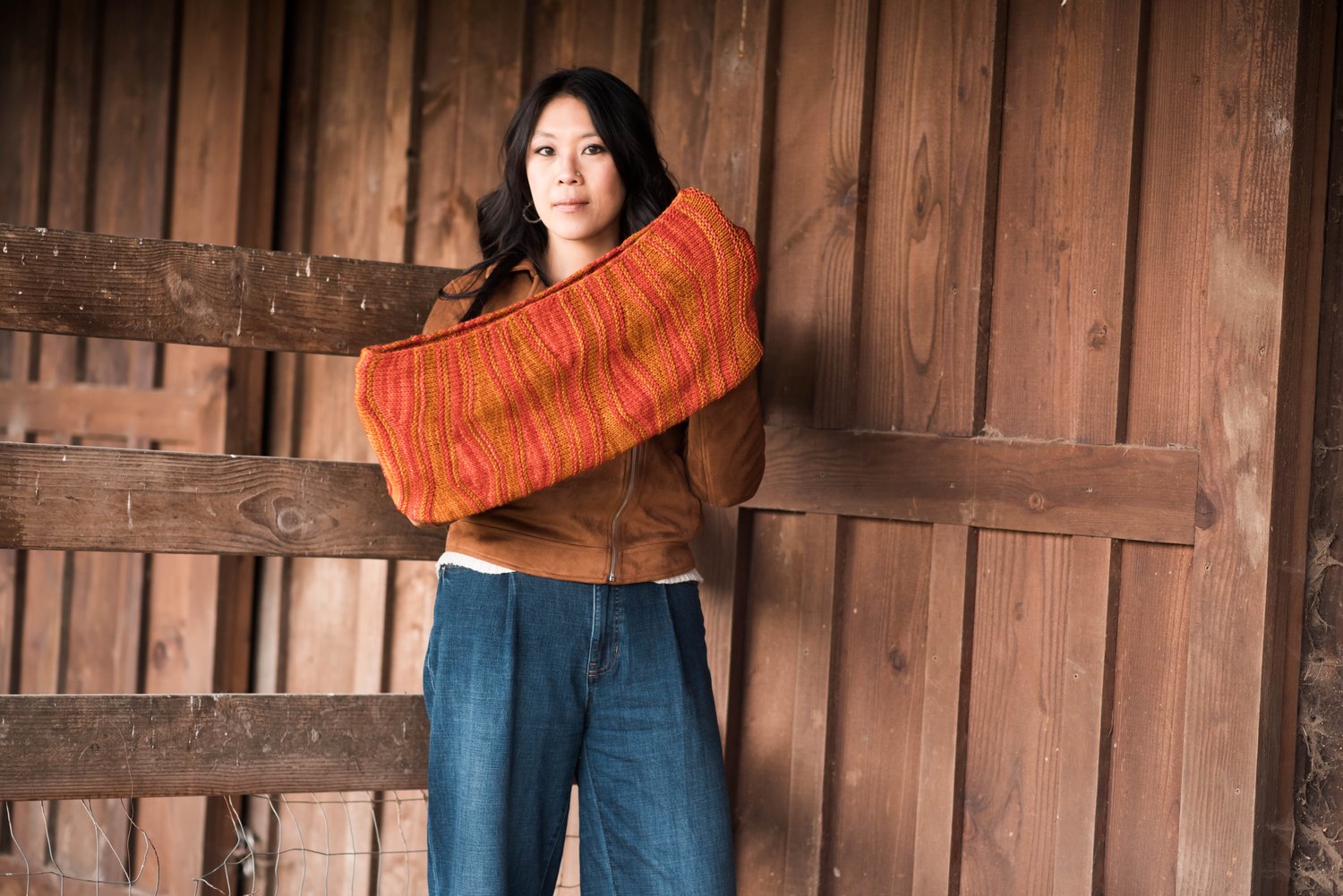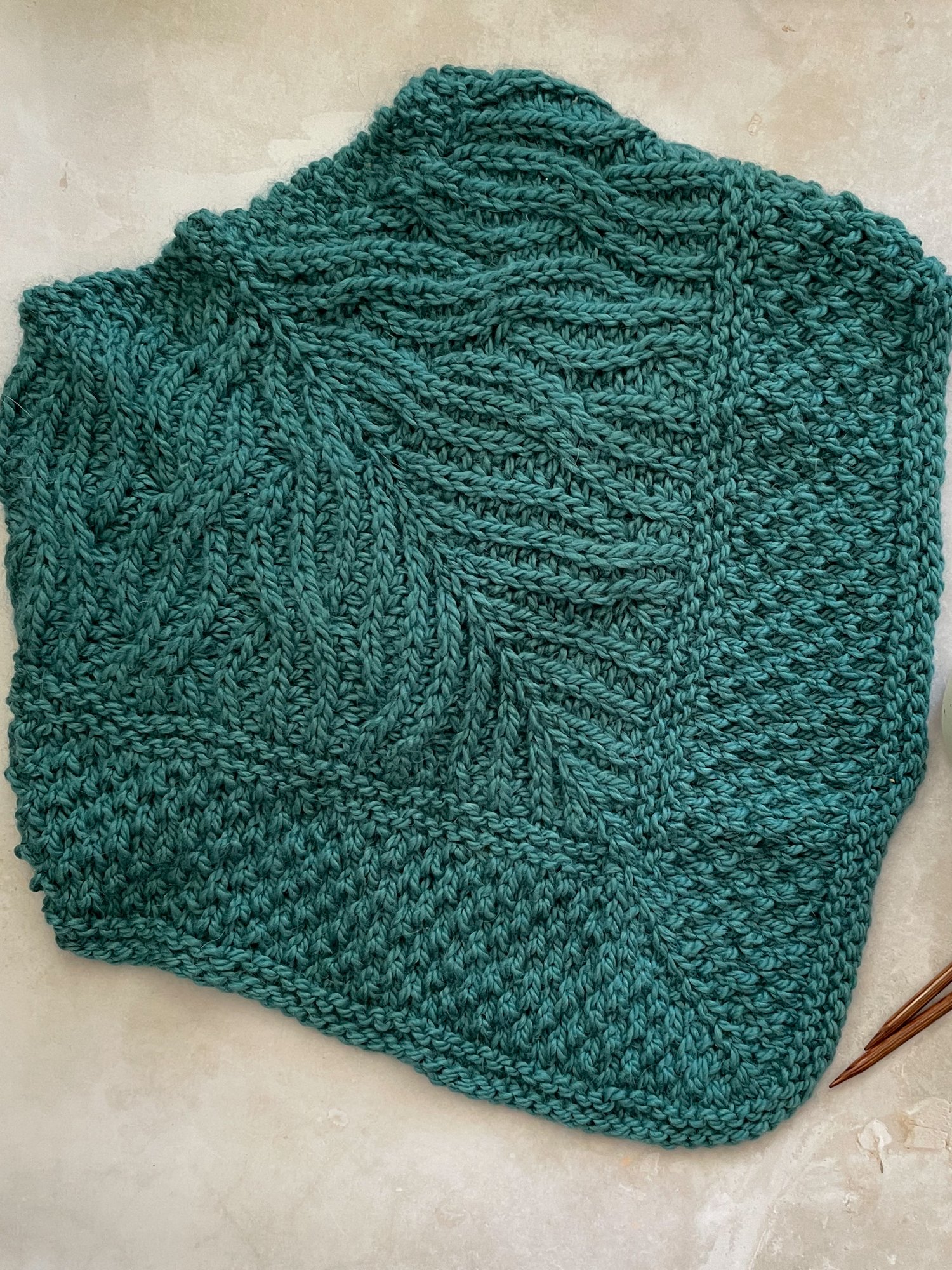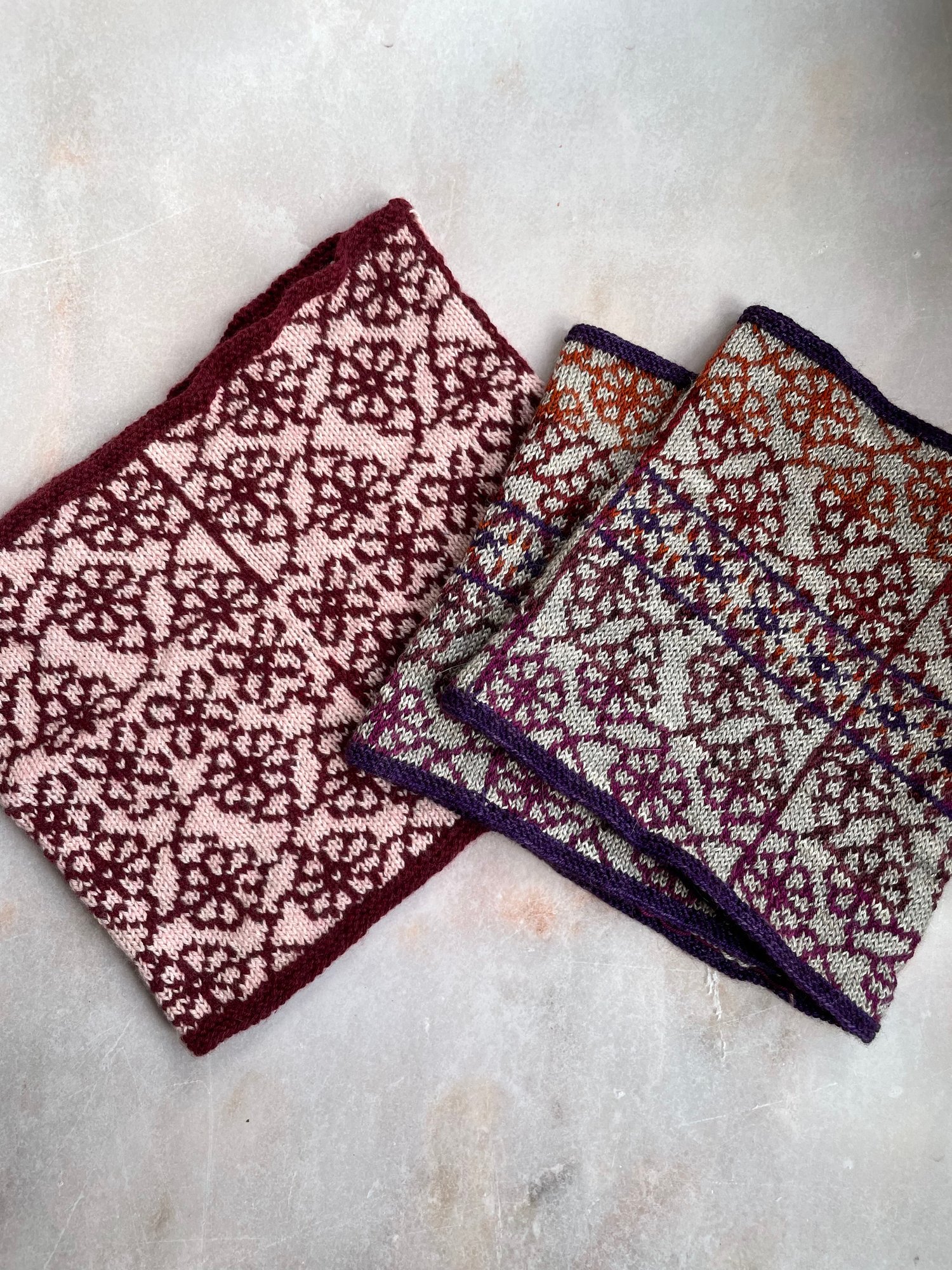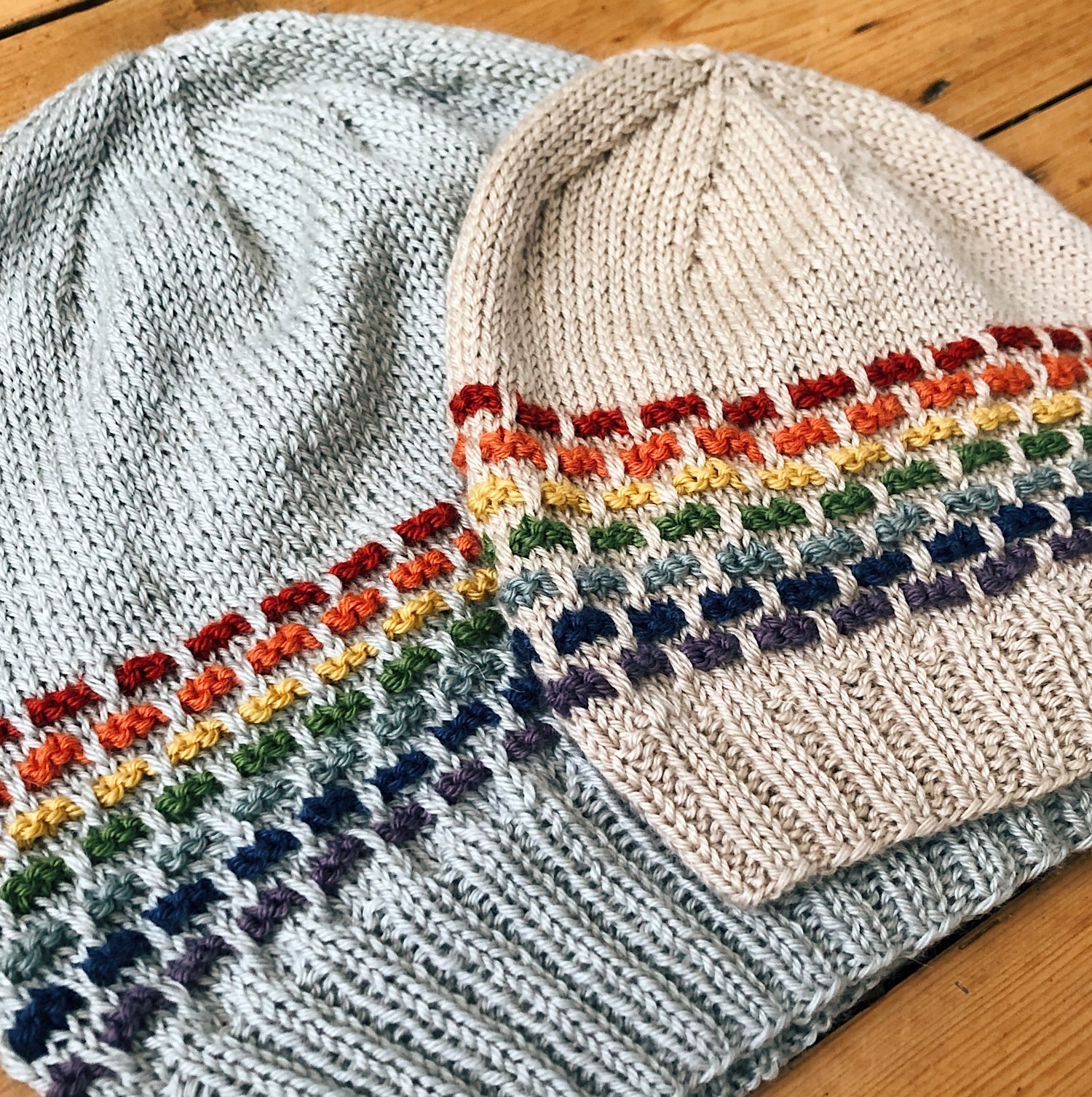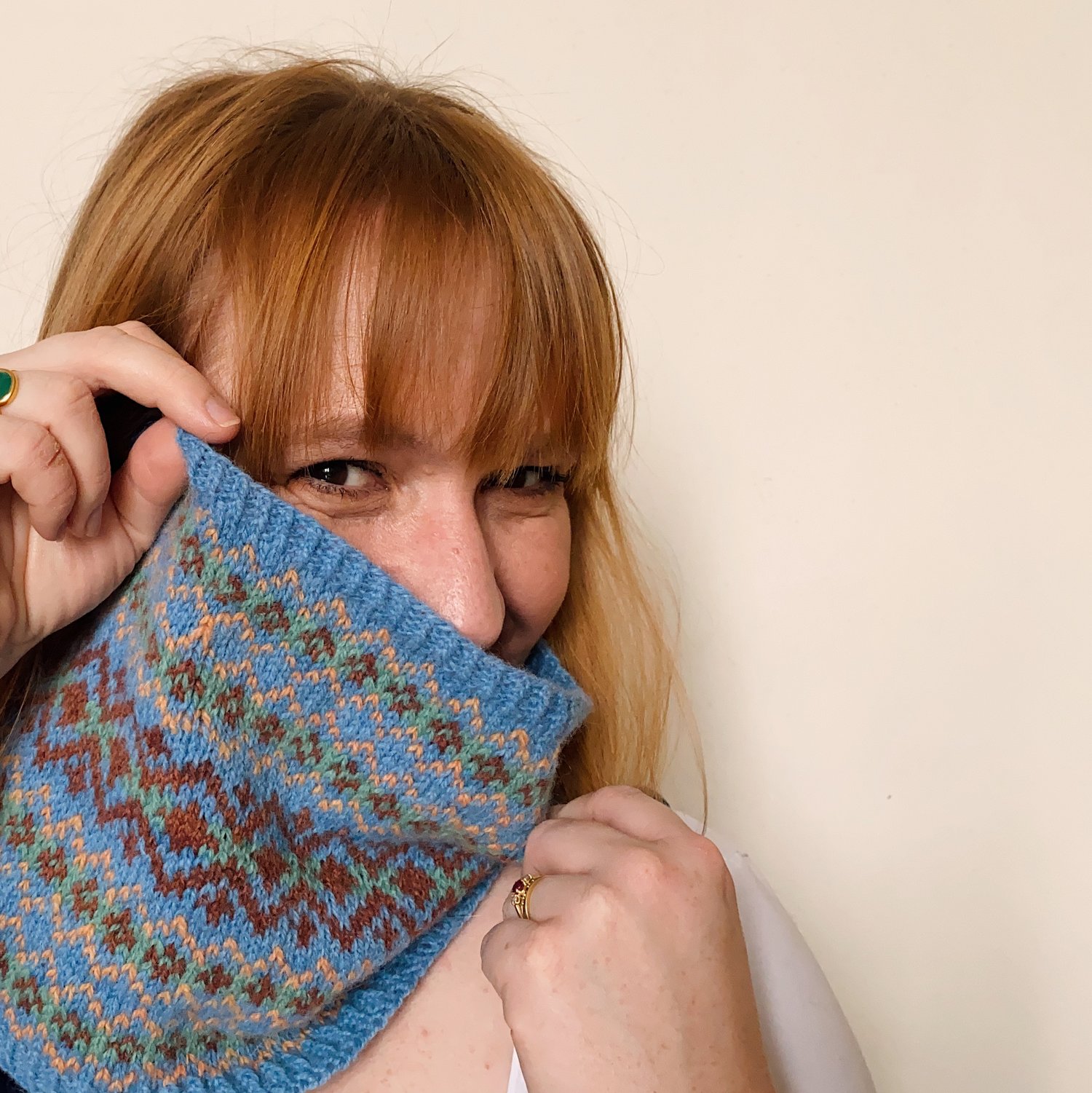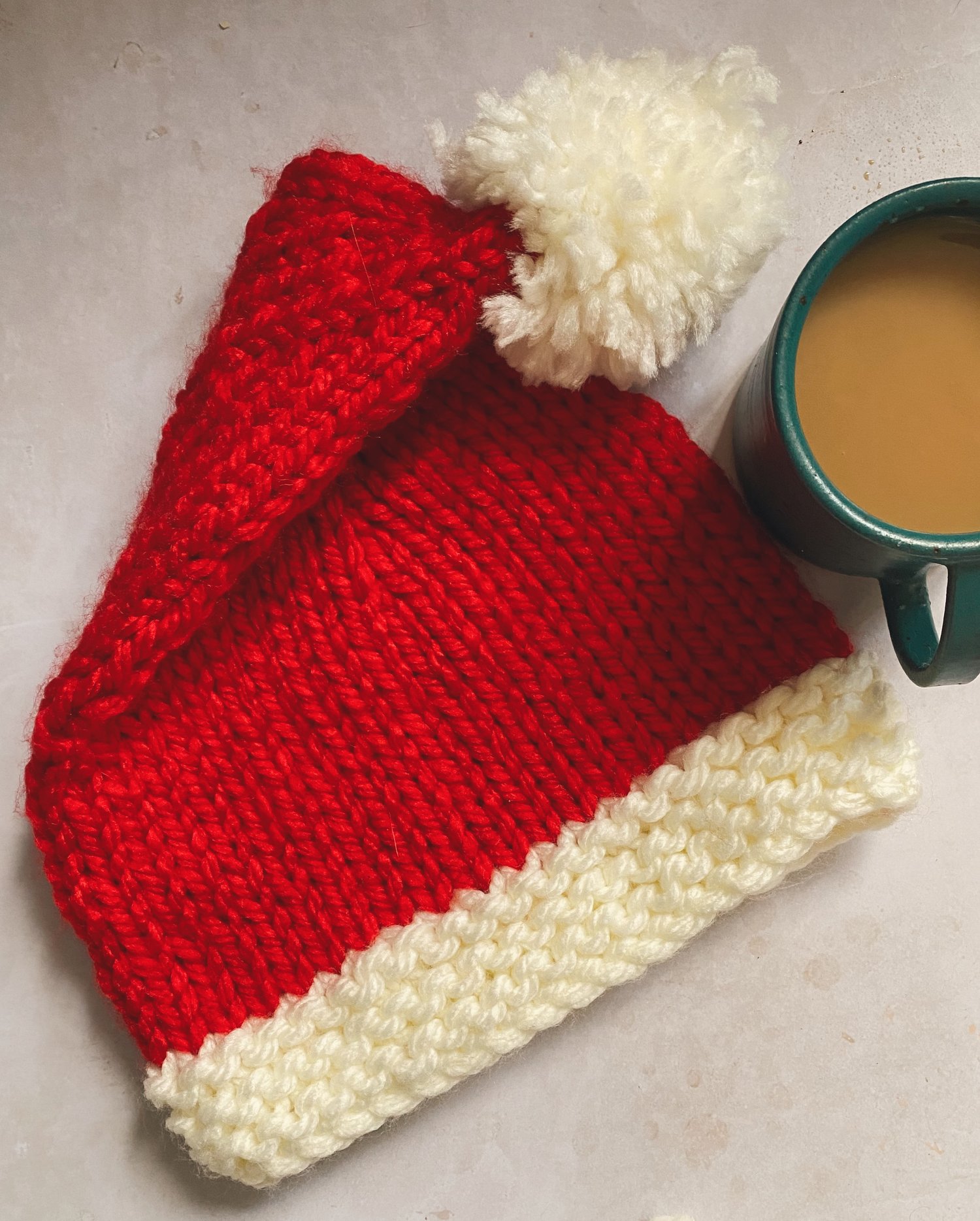Mega Basic Cowl
The Mega Basic Cowl is a cosy yet simple accessory, designed to make a great - and wearable - first knitting project.
Using only knit and purl stitches, and with video tutorials included for all the elements beyond that, this cowl works up quickly for a satisfyingly achievable knit.
For the more experienced knitter, the cowl also provides the perfect blank slate for a bit of duplicate stitch embroidery.
Key information
The cowl is worked from the bottom up, in the round - meaning there’s no seaming involved.
After casting on, the cowl is joined in the round, and ribbing is worked for the bottom. Video tutorials are linked within the pattern for all these skills.
The main body of the cowl is then worked in stocking stitch, before the top ribbing is worked, followed by a stretchy cast-off. Once more, a video tutorial is linked for the cast-off.
Suggested yarn:
160m (175yds) of aran weight yarn. The sample is worked in Hjelholts Uldspinderi Håndværksgarn, a 100% wool aran weight yarn (200m/219yds per 100g) but any aran weight yarn will be suitable for this project.
In particular, I’d recommend World of Wool Isle Aran (80% Shetland wool, 20% BFL wool, 175m/192yds per 100g), or for a machine washable alternative, West Yorkshire Spinners The Croft Aran (100% wool, 166m/182yds per 100g),
Needles and notions:
- 4mm (US 6) and 5mm (US 8) circular needles - 40cm/16in long
- Stitch marker
- Tapestry needle
Gauge: 16st and 21 rows to 10cm/4in on 5mm (US 8) needles, after blocking. For more about what gauge is, why it’s important, and how to make sure your gauge matches your pattern, the pattern links to a post on my blog all about gauge.
Although correct gauge isn’t vital to achieving a wearable cowl, if your gauge varies a lot from the pattern, it could have considerable impact on how much yarn you need.
Finished size:
22cm/8.75in height and 34cm/13.5in diameter after blocking.
Skills needed:
This pattern assumes that you already know how to work basic knit and purl stitches. All the skills beyond that are listed below, with links to tutorials within the pattern to show you what to do.
- Long tail cast on
- Joining in the round
- Working ribbing
- Changing needles
- Jeny’s surprisingly stretchy bind-off
- Darning in ends
